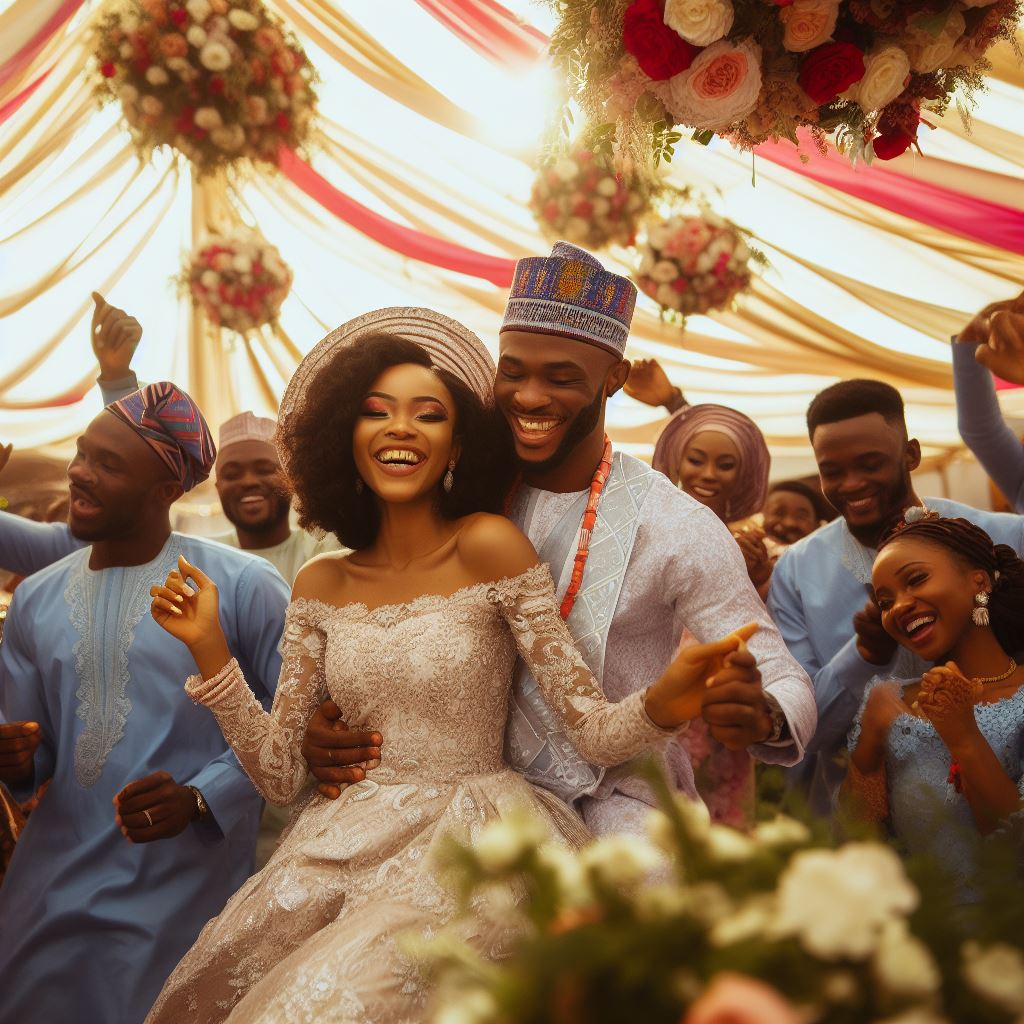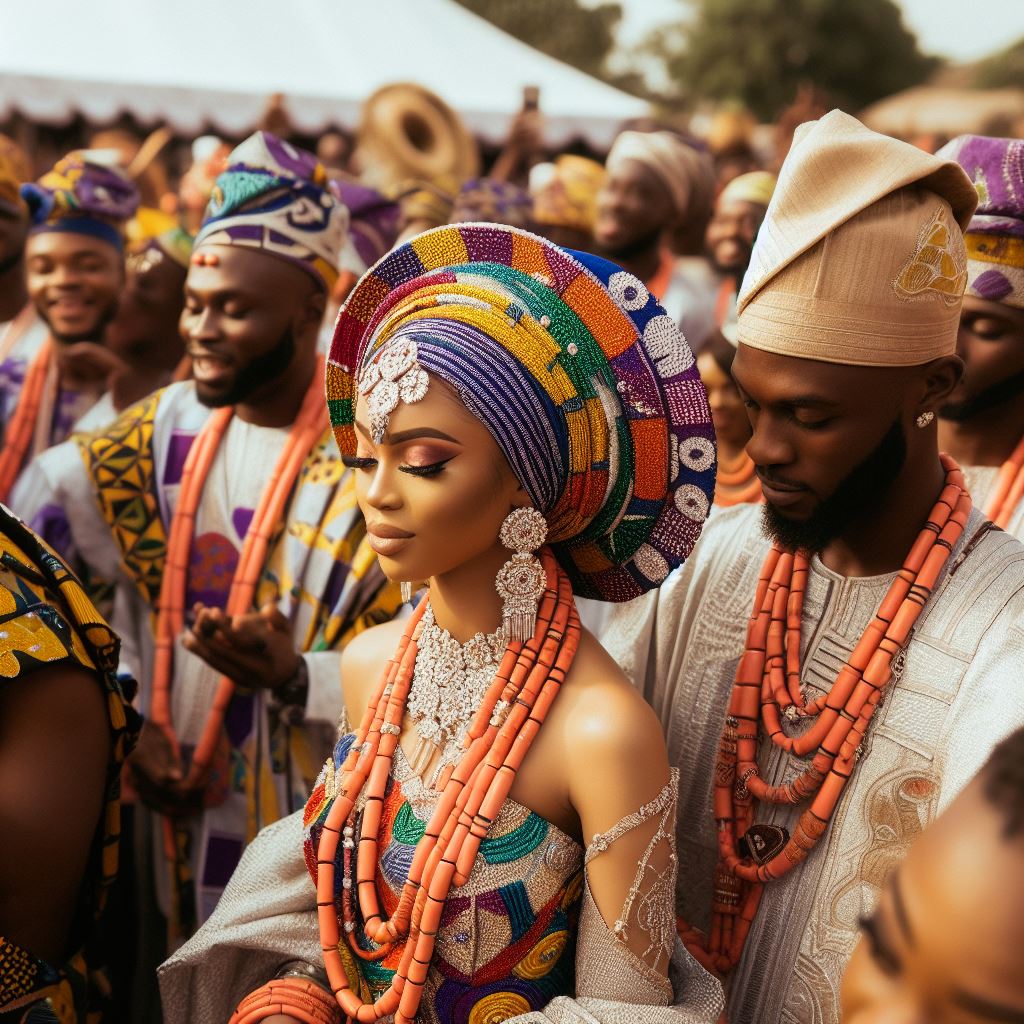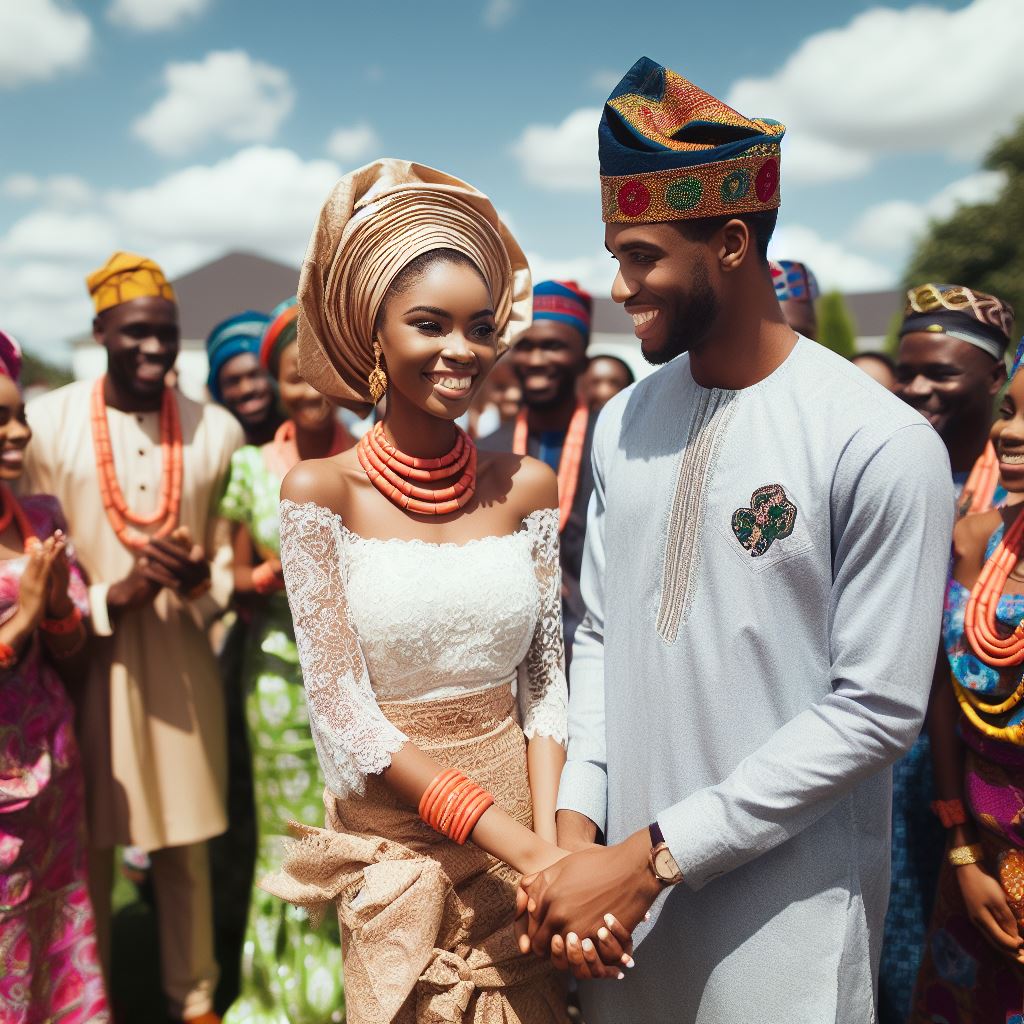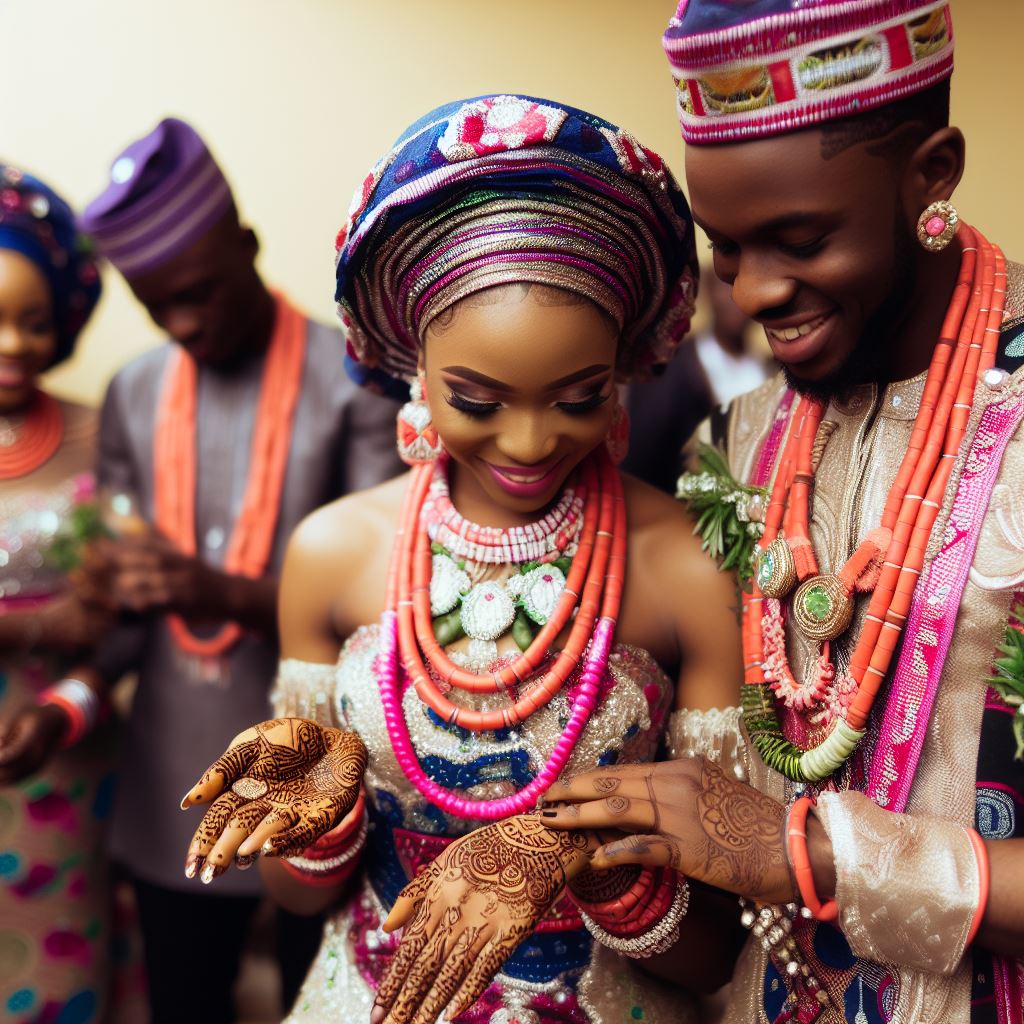Introduction
Introduction to Nigeria’s Marriage Laws
Welcome to an enlightening exploration of Nigeria’s intricate marriage laws, which form the legal backbone of matrimonial unions in this diverse and culturally vibrant nation for Nigeria Marriage Laws.
The Significance of Awareness
Understanding these laws is not just advisable but paramount for couples embarking on their journey to marriage in Nigeria.
It guarantees that your union is not only a celebration of love but also a legally recognized and protected commitment.
Navigating the Complex Landscape
Nigeria’s diverse cultural and religious landscape brings complexity to its marriage laws.
As we delve deeper into these sections, we will demystify the intricacies, ensuring that you are well-informed and empowered when planning your nuptials in this fascinating and legally diverse country.
History of Marriage Laws in Nigeria
Overview of the historical
In order to fully understand Nigeria’s current marriage laws, it is important to take a look at their historical development.
The evolution of these laws has been influenced by various factors, including colonialism, cultural traditions, and societal changes.
Colonial Influence
- During the colonial era, Nigeria was under British rule, and colonial laws greatly shaped the country’s legal system.
- The British introduced the Marriage Ordinance of 1861, which imposed Christian norms and regulations on marriage.
- This ordinance enforced monogamy and prohibited practices such as polygamy and child marriage.
Post-Colonial Changes
- After gaining independence in 1960, Nigeria continued to build upon and modify the colonial marriage laws.
- The Matrimonial Causes Act of 1970 was enacted to govern marriage, divorce, and other related matters in Nigeria.
- Under this act, women were granted the right to petition for divorce on the grounds of adultery, cruelty, or desertion.
Customary Marriage
- Nigeria is a diverse country with various ethnic groups, each with its own cultural practices and traditions.
- Customary marriages, which are recognized under Nigerian law, are based on traditional customs and rituals.
- These marriages often involve the payment of bride price and the performance of certain ceremonies.
Marriage Act of 1990
- In 1990, Nigeria passed the Marriage Act, which aimed to provide a unified legal framework for all types of marriages.
- This act recognizes marriage as a union between a man and a woman, and establishes the minimum age of marriage as 18 for both genders.
- It also forbids marriages between close relatives, such as siblings or cousins.
Recent Developments
- In recent years, there have been ongoing discussions and debates regarding the need to reform Nigeria’s marriage laws.
- One of the key issues being addressed is the recognition of civil partnerships and same-sex marriages.
- While some argue for more inclusive laws, others believe that maintaining traditional values is crucial.
Over the years, Nigeria’s marriage laws have undergone significant changes, shaped by both colonial and cultural influences.
It is important for couples to familiarize themselves with these laws to ensure compliance and protect their rights.
As the country continues to evolve, it is likely that further amendments will be made to reflect the changing societal norms and values.
Types of Marriages Recognized in Nigeria
Nigeria recognizes various types of marriages influenced by cultural and religious practices, showcasing marriage diversity as a sacred union.
Let’s explore the various types of marriages recognized by Nigerian laws.
Customary Marriage
This type of marriage is recognized by both traditional and statutory laws. It involves rites and customs specific to different ethnic groups in Nigeria.
For example, the Igbo tribe practices the “Igba Nkwu” ceremony.
Islamic Marriage
Islamic marriages are conducted according to Sharia law. They require the consent of both parties, the presence of witnesses, and the payment of a bride price or dowry.
Statutory Marriage
This is a civil marriage performed in a registry office or licensed place of worship. It follows the Marriage Act of Nigeria and requires a marriage certificate.
Church (Christian) Marriage
Perform this marriage following Christian rites and customs in a church or an authorized place of worship.
Customary/Traditional and Statutory Marriage
Some couples choose to have both customary and statutory marriages. They partake in traditional rites and also officially register their marriage at the registry.
Each type of marriage has specific requirements and legal procedures.
For a customary marriage, the couple must fulfill the customs of their ethnic group, such as payment of the bride price, consent from the families, and conducting traditional ceremonies.
An Islamic marriage requires the consent of both parties, the presence of witnesses, and adherence to Islamic customs..
Examples of marriage practices in Nigeria demonstrate the diversity among different ethnic groups.
The Yoruba culture conducts the “Introduction” ceremony, known as an “engagement,” before the traditional marriage rites.
The Hausa tribe practices a grand wedding ceremony called “Fatihah” where the bride and groom exchange vows.
Furthermore, Nigeria recognizes common-law marriages whereby couples live together for a certain period without formal marriage rites.
Some cases recognize these unions, although they lack legal binding. Monogamous marriages find wide acceptance, while certain cultures permit polygamous ones.
Read: A Lifelong Bond: Inspirational Bible Verses on Marriage
Legal Age and Consent
- The legal age for marriage in Nigeria is 18 years old for both males and females.
- Enter marriage with complete consent and understanding; it’s a profound commitment requiring serious consideration.
- Willingly give consent without coercion; it’s vital in any marriage, a fundamental aspect of the commitment.
- Child marriages are illegal in Nigeria, and it is essential to protect children from these harmful practices.
- Marrying below the legal age can have severe consequences for both the individuals involved and society as a whole.
- Child marriages frequently force young individuals into adult responsibilities, causing interruptions in their education.
- Early marriages can result in decreased earning potential and limited opportunities for personal and professional growth.
- Young brides’ physical and emotional well-being greatly suffers, as they may not be prepared for adult responsibilities.
- Health complications and the risk of maternal mortality are higher in young girls who become pregnant at an early age.
- Child marriages perpetuate a cycle of poverty, as individuals who marry early are more likely to live in poverty throughout their lives.
Prevention of Child Marriages
- Raise awareness about the legal marriage age and the adverse effects of child marriages through concerted efforts
- Communities, government, and non-governmental organizations need to work together to protect children and enforce the law.
- Education plays a crucial role in preventing child marriages, as it empowers young individuals and their families with knowledge.
- Educate parents and guardians on the significance of enabling their children to finish their education before marriage.
- Strengthen social safeguards, like enhancing birth registration and age verification mechanisms, to prevent underage marriages effectively.
Consequences of Marrying Below the Legal Age
- Marrying below the legal age can lead to legal repercussions, including fines and imprisonment.
- The couple may face societal disapproval and rejection from their community.
- The risk of divorce is higher in marriages where individuals married below the legal age.
- Young brides are more likely to experience domestic violence and abuse.
- Children born to young parents may suffer from inadequate care and nurturing due to their parents’ lack of maturity.
- The overall development and well-being of children from child marriages are at risk.
- Unplanned pregnancies are more common in early marriages, which can result in unstable family dynamics.
- Early marriages limit the opportunities for personal growth, education, and career development.
- Individuals who marry below the legal age often struggle to escape the cycle of poverty.
- It is essential to empower young girls and boys by providing them with educational and economic opportunities.
Understanding Nigeria’s marriage laws, particularly the legal age and consent, is crucial for every couple. Marrying below the legal age can have severe consequences on both individuals and society.
Preventing child marriages through education, awareness, and enforcement of the law is vital to protect the well-being of young individuals.
Make efforts to offer education and economic empowerment, breaking poverty cycles, and enabling informed marriage decisions.
Read: Navigating Marital Challenges: Guidance from the Bible
Rights and Responsibilities of Married Couple
Rights and Responsibilities According to Nigerian Laws
Nigerian laws grant married couples certain rights and responsibilities that are crucial to understand for a harmonious marriage.
Matrimonial Property and Division of Assets
One significant aspect is the concept of matrimonial property, which includes assets acquired during the marriage. Nigerian laws outline how these assets should be divided in case of separation or divorce.
Provisions for Spousal Support and Maintenance
Nigeria’s legal framework also addresses spousal support and maintenance. It outlines the obligations of spouses to provide financial support when necessary.
Understanding these legal aspects is vital for couples in Nigeria.
It ensures that both partners are aware of their rights and responsibilities, promoting fairness and equity within the marriage. Additionally, this knowledge can be essential in case of marital challenges or disputes.
The upcoming sections will explore the details of these rights and responsibilities, revealing their application and enforcement in the Nigerian legal context.
This comprehensive understanding will empower couples to navigate their marriage with confidence, knowing their legal standing and obligations under Nigerian law.
Read: Strength in Unity: Marriage Verses from Ecclesiastes
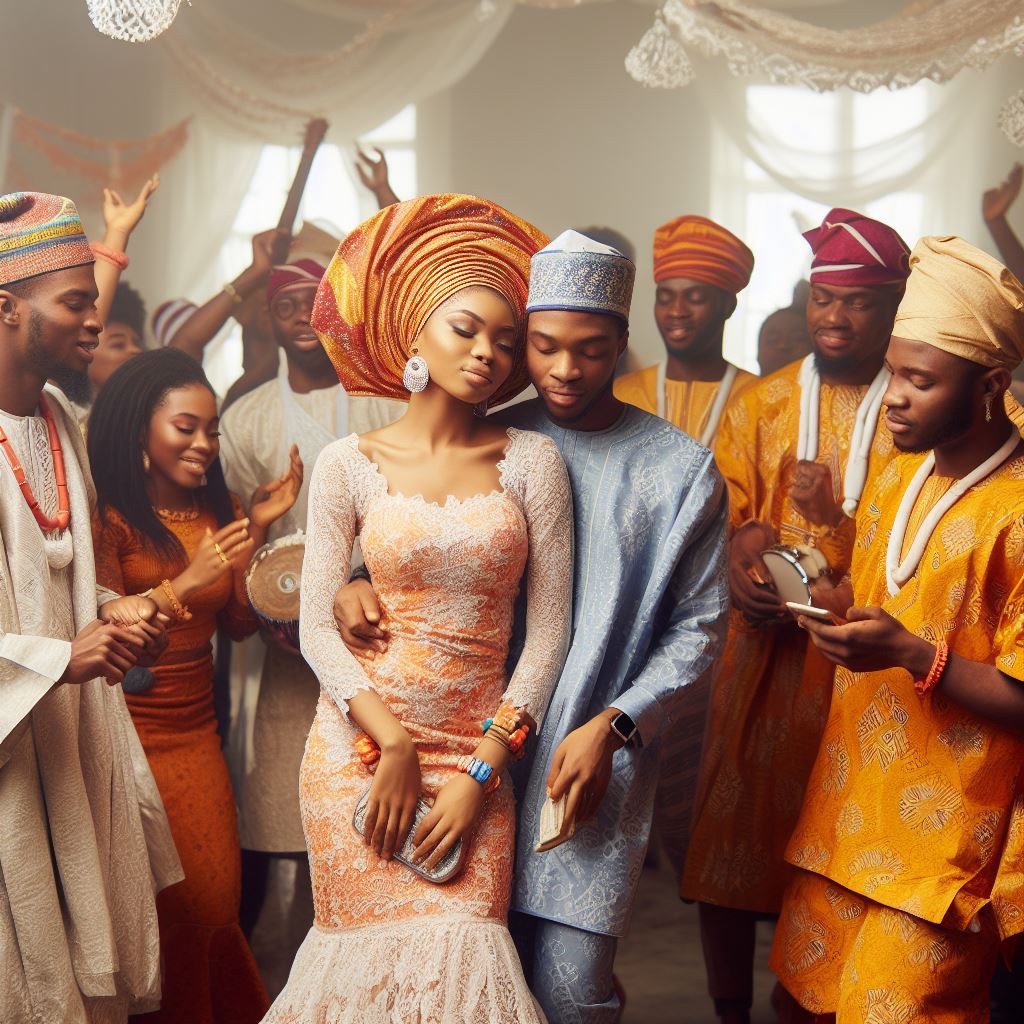
Islamic Sharia Law and Customary Marriages
Significance and Implications of Islamic Sharia Law on Marriage in Nigeria
Islamic Sharia law holds great importance and has profound implications on marriage in Nigeria.
As a predominantly Muslim country, Sharia law governs the marriage practices of Muslims and affects various aspects of their lives.
Under Sharia law, marriage is considered a sacred contract between a man and a woman.
It outlines specific guidelines on the responsibilities and rights of both spouses, ensuring mutual respect and support within the marriage.
Sharia law significantly requires both the bride and groom to give consent for the marriage to be valid.
This ensures that individuals enter into marriage willingly and without any coercion.
Sharia law also emphasizes the importance of a dowry, which is a gift given by the groom to the bride.
This symbolizes the groom’s commitment and ability to provide for his wife. The amount of the dowry is typically negotiated and agreed upon by both families.
Legal Status of Customary Marriages under Nigerian Laws
Nigeria also recognizes customary marriages, which are prevalent among various ethnic groups across the country. Cultural traditions and beliefs, rather than religious laws, govern customary marriages.
For a customary marriage to be considered legally valid, certain requirements must be met.
These requirements differ among ethnic groups but often include consent from both parties, payment of bride price, and the presence of witnesses.
Certain state laws may not recognize customary marriages, yet they maintain substantial significance within Nigerian society.
Many couples choose to have both a customary marriage and a civil marriage to ensure legal recognition and protection of their union.
Challenges and Opportunities Associated with These Traditions
Despite the cultural and religious significance of Islamic Sharia law and customary marriages, there are also challenges and opportunities associated with these traditions in Nigeria.
Different religious backgrounds can introduce legal complexities, leading to potential ambiguity in the process.
Sharia law and customary practices may inadequately protect women’s rights, posing a concern for gender equality.
Efforts aim to address these issues and ensure gender equality in these marriage traditions.
On the other hand, these traditions also provide opportunities for cultural preservation and communal cohesion.
They serve as a way for individuals to connect with their heritage and maintain the values and practices passed down through generations.
Moreover, individuals can freely practice their beliefs and customs while enjoying legal benefits and protections through the recognition of both Islamic Sharia law and customary marriages.
Islamic Sharia law and customary marriages hold significant importance in Nigeria.
They shape the marriage practices of Muslims and various ethnic groups, impacting aspects such as consent, dowry, and cultural traditions.
Recognizing these traditions enables individuals to preserve cultural identity and practice beliefs within the country’s legal framework, despite challenges and opportunities.
Read: Commitment and Marriage: Bible Verses to Live By
Marriage Dissolution and Divorce
The Matrimonial Causes Act in Nigeria governs divorce, outlining procedures and legal grounds for marriage dissolution.
Procedures for Divorce
- A spouse seeking a divorce must first file a petition in a High Court stating the grounds for divorce.
- The petitioner must prove these grounds to the court, such as adultery, cruelty, desertion, or irreconcilable differences.
- Upon filing the petition, the court serves the respondent with a copy, granting a specified period for response.
- If the respondent contests the divorce, the case will proceed to trial, where both parties present evidence and arguments.
- When convinced of an irretrievable breakdown, the court issues a divorce decree.
Legal Grounds for Divorce
- Nigeria recognizes both fault-based and no-fault grounds for divorce.
- Fault-based grounds include adultery, cruelty, desertion, incurable insanity, and any behavior that makes living together intolerable.
- No-fault grounds include irreconcilable differences, living apart for at least three years, or separation for at least two years with the consent of both parties.
- The court will consider the evidence presented and determine if the grounds for divorce are valid.
Rights and Obligations of Parties during Divorce Proceedings
- During divorce proceedings, both parties have the right to legal representation and to present their case before the court.
- They also have the right to request alimony or financial support, child custody, and division of marital assets.
- Both spouses must disclose all pertinent financial details and comply with the court’s directives.
- The court considers factors such as the welfare of the children and the financial situation of both parties when making decisions.
Alternative Dispute Resolution Methods and Marital Counseling Resources
- Apart from traditional litigation, couples can opt for alternative dispute resolution methods such as mediation or arbitration.
- Mediation involves a neutral third party guiding the couple towards a mutually acceptable agreement.
- Arbitration involves a third party making a binding decision after hearing both parties’ arguments.
- Marital counseling resources are also available to couples who want to reconcile and work on their marriage.
- Qualified counselors can provide guidance, support, and techniques to improve communication and resolve conflicts.
Understanding the procedures, legal grounds, and rights during divorce can help couples navigate this challenging process effectively.
Exploring alternative dispute resolution methods and seeking marital counseling resources can also provide avenues for reconciliation and the opportunity to save the marriage.
Conclusion
It is crucial for couples in Nigeria to have a solid understanding of the marriage laws in the country.
Couples can secure legal recognition and protection for their union by understanding marriage’s legal aspects.
The key points discussed in this blog section include the different types of marriages recognized in Nigeria, such as customary, civil, and Islamic marriages.
We also discussed the requirements for each type of marriage, such as age restrictions, consent, and the need for witnesses.
Understanding Nigeria’s marriage laws is essential to avoid legal complications and ensure that a marriage is valid.
Without proper knowledge, couples may face challenges in obtaining a marriage certificate, inheriting property, or accessing spousal benefits.
Therefore, we encourage couples planning to marry in Nigeria to consult with legal professionals who specialize in family law.
These experts can provide accurate information and guide couples through the process, ensuring a smooth and legal marriage.
Don’t underestimate the significance of understanding Nigeria’s marriage laws.
Educate yourself and consult professionals to guarantee legal recognition and protection for your union.
Marriage is a sacred and lifelong commitment, and knowing the laws surrounding it will help you start your journey on the right legal footing.

